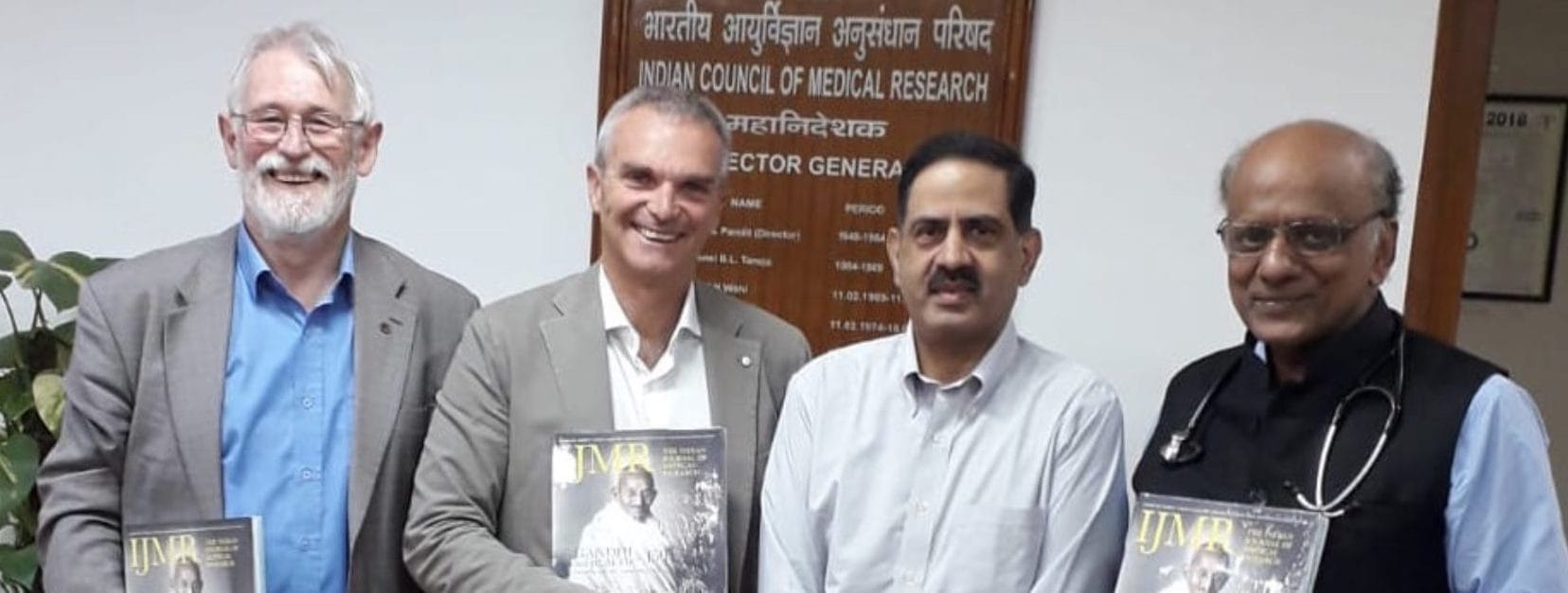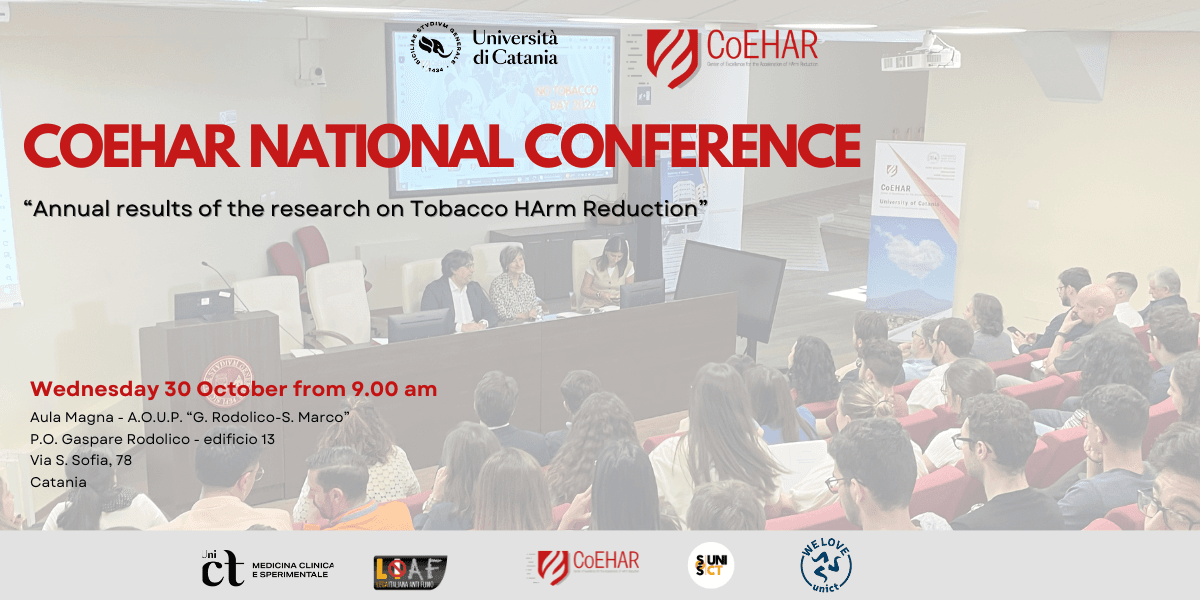New Delhi August 27, 2019 – After the invitation of the Indian Ministry of Health to ban all forms of electronic cigarettes in all states, prof. Riccardo Polosa was called by the Heart Care Foundation of India to attend a formal meeting in New Delhi with the Director General of the Indian Council Medical Research – ICMR.
Also interviewed by the Indian national television, the Sicilian scientist is urging the Government to reconsider the recommendation of an absolute ban on low-risk devices for the sake of national public health.
In the picture, from the left, prof. Ron Borland of the Cancer Council Victoria, prof. Riccardo Polosa, prof. Bharat K. Bhargava Director General of the Indian Council Medical Research ICMR and prof. K K Aggarwal President of the Heart Care Foundation of India.
On 12 August, in fact, the director of CoEHAR (Research Center for the Reduction of Smoke Damage of the University of Catania), together with a large group of experts in the field (over sixty scientists from the international academic world), sent to the Director General of the ICMR (in photo) an official letter containing an uncritical evaluation of the data on the efficacy and safety of electronic cigarette published in the White Paper on Electronic Nicotine Delivery System, widespread just in recent months.
“The evidence collected on that document is based on poor quality studies” – said prof. Polosa.
According to experts, the Indian White Paper sets out concerns related to the use of e-cig and deriving from the results of studies conducted without following universally recognized scientific standards. The document underlines the lack of knowledge of the negative effects on health, the risks deriving from second-hand exposure, the risk for dual users, for the use of e-cig among young people and the lack of efficacy to stop smoking permanently.
Scientists led by prof. Polosa, on the other hand, reminded the members of the Ministry that authoritative studies demonstrate the effectiveness of these tools in reducing the harm caused by cigarette smoking. For example:
- Public Health England (PHE) has published a report which states that electronic cigarettes are unlikely to have more than 5% of the risk of tobacco cigarettes.
-
The National Health Service (NHS) in the United Kingdom recently conducted a survey in 200 schools in England showing that youth smoking rates decrease at an encouraging rate.
-
In the United States, an analysis of a large US population survey indicated that the substantial increase in the use of electronic cigarettes between 2010 and 2015 was significantly associated with an increase in smoking cessation.
-
The US Food and Drug Administration and the UK Medicines and Healthcare products Regulatory Agency (MHRA) even recommend the long-term use of nicotine in the form of alternatives if needed, to maintain smoking cessation and prevent relapse.
“Addressing the problem of smoking with a unilateral approach, by banning the use of e-cig, would be deleterious” – explained Polosa.
Through a solid evaluation of the Ministry’s data, the scientists’ report aims to provide free access to information for a more balanced health literacy.
“In a country where tobacco use kills about 1 million people every year and where cigarettes are sold freely in stores, disseminating safer alternatives could help strengthen tobacco control measures. I hope that the ICMR will soon be able to review the contents of the White Paper and consequently delete the recommendation to ban the e-cig in India” – concluded prof. Polosa.
It is difficult to understand why the ICMR White Paper recommends an absolute ban on electronic cigarettes for the “greater interest of protecting public health”, while conventional cigarettes continue to be sold freely.
New Delhi has the opportunity to improve public health by integrating existing tobacco control policies with the promotion of less harmful forms of nicotine.





